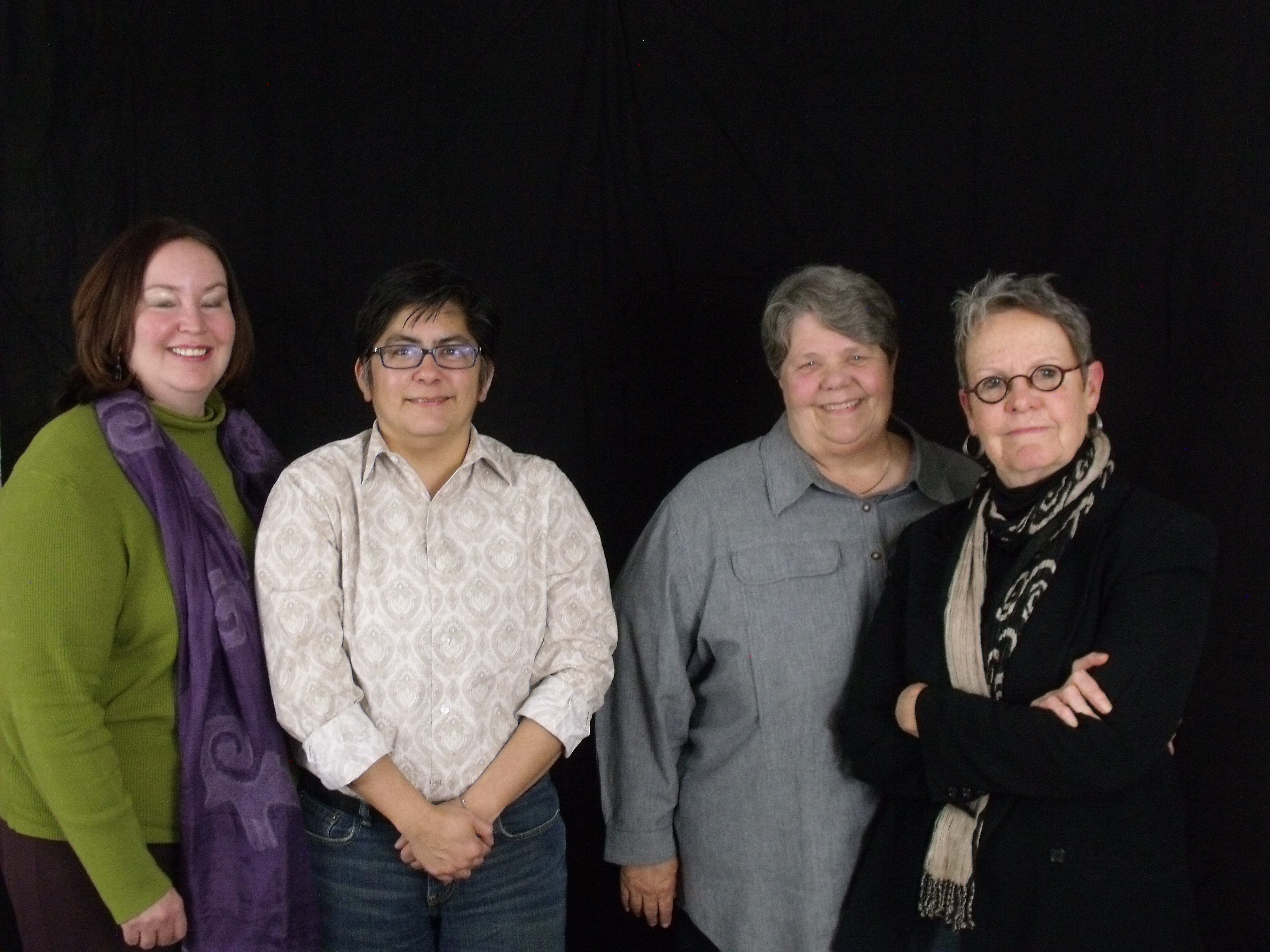ALBUQUERQUE, NM—Today, two same-sex couples seeking the freedom to marry filed a lawsuit in Albuquerque’s district court after they applied for and were denied marriage licenses. The lawsuit claims that the New Mexico marriage statutes and New Mexico Constitution do not bar same-sex couples from marrying, and therefore the State of New Mexico should issue civil marriage licenses to any same-sex couple who applies for one. The couples are represented by the American Civil Liberties Union (ACLU), the ACLU of New Mexico, the National Center for Lesbian Rights (NCLR), the Albuquerque law firm Sutin, Thayer & Browne, APC, and local cooperating attorneys Maureen Sanders, Lynn Perls, and Kate Girard.
New Mexico is the only state in the country that does not either explicitly recognize same-sex relationships through marriage or civil unions or ban recognition of same-sex relationships by statute or constitutional amendment.
The couples are Miriam Rand, 63, and Ona Porter, 66, and Rose Griego, 47, and Kim Kiel, 44. Miriam and Ona currently live in Albuquerque, while Rose and Kim reside in Santa Fe.
“Ona and I have been together for over 25 years,” said Miriam Rand. “Together, we raised children, we took care of our mothers when they were dying and are currently raising our granddaughter. We are family; we love and care for one another through good times and bad. We want our community to recognize our love and commitment for what it is: a marriage.”
“Marriage matters,” said Rose Griego. “Kim and I have already made a lifelong commitment to one another, but marriage says ‘family’ in a way that no other word can. It’s important to us that the State of New Mexico—our home, the place where we live, work and raised our family—recognizes and respects our relationship.”
Said ACLU of New Mexico Legal Director Laura Schauer Ives: “The time has come for New Mexico to treat same-sex couples with the same dignity and respect we afford opposite-sex couples. This means allowing loving, committed same-sex couples the freedom to marry. We believe that the New Mexico Constitution guarantees same-sex couples this freedom. Today we ask the courts to clarify and confirm that same-sex couples may seek happiness and protect their families within the institution of civil marriage in New Mexico.”
Added National Center for Lesbian Rights Legal Director Shannon Minter: “New Mexico has a long history of respecting individual freedom and supporting families. These couples want the same opportunity to marry and to take responsibility for one another as other couples.”
“There is growing support nationwide for the freedom of to marry, with over fifty percent of Americans now saying they support marriage for same-sex couples,” said Elizabeth Gill, staff attorney with the ACLU Lesbian Gay Bisexual and Transgender Project. “It is time for this fundamental freedom to be a reality for same-sex couples in New Mexico.”
Meet the Plaintiffs
Download the Legal Complaint
###
The American Civil Liberties Union is our nation's guardian of liberty, working daily in courts, legislatures and communities to defend and preserve the individual rights and liberties that the Constitution and laws of the United States guarantee everyone in this country. www.aclu.org
The ACLU of New Mexico is an affiliate of the national ACLU, working in the courts, legislature and communities to protect and extend individual rights and liberties for all New Mexicans. www.aclu-nm.org.
The National Center for Lesbian Rights is a national legal organization committed to advancing the human and civil rights of the lesbian, gay, bisexual, and transgender community through litigation, public policy advocacy, and public education. www.NCLRights.org
Sutin, Thayer & Browne, with offices in Albuquerque and Santa Fe, is one of New Mexico's largest law firms, providing exceptional legal services since 1946. More information is available at www.sutinfirm.com


